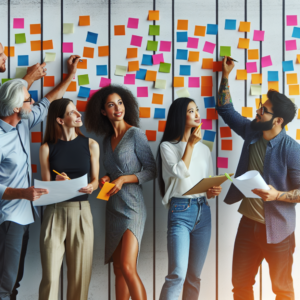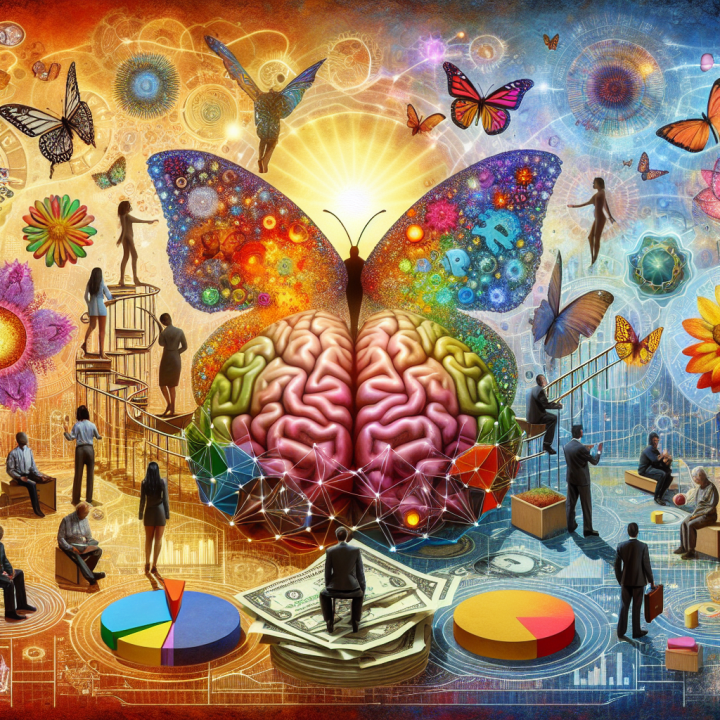Event professionals are uniquely positioned to craft experiences leading to transformative moments for individuals and organisations. By learning and adopting behavioural economics methodologies, they can create events that entertain, engage and drive positive outcomes for businesses and the wider world.
Understanding Transformative Experiences
Transformative experiences are profound moments that can lead to significant personal or organisational change. These experiences are not linear but rather a journey with highs and lows, encompassing moments of both triumph and despair. For event professionals, recognising the potential for transformation in the experiences they create is the first step towards designing events that have a lasting impact.
See what Donna L Roberts, PhD says on the topic

The Intersection of Behavioural Economics and Event Planning
Behavioural economics is a field that merges psychology and economics to understand how people make decisions. It provides insights into human behaviour that can be leveraged to influence decisions and encourage desired outcomes. Event professionals can use these insights to design experiences that resonate with attendees more deeply.
Read more from Harvard Business School

Key Concepts for Event Professionals:
- Loss Aversion: People prefer avoiding losses over acquiring equivalent gains. This can be used to emphasise the unique, once-in-a-lifetime nature of an event
- Anchoring: Initial information serves as a reference point for decision-making. Event marketing can set high expectations that become a benchmark for attendees
- Social Norms: People are influenced by the behaviour of others. Creating a shared event experience can foster a sense of community and collective action
- Incentives: Both economic and non-economic incentives can drive behaviour. Rewards or recognition at events can motivate engagement and participation

Applying Behavioural Economics to Event Strategies
By incorporating behavioural economics into their strategies, event professionals can optimise their approach to customer engagement, pricing, marketing, and employee incentives. Understanding the decision-making processes of different customer segments allows for tailored event experiences that resonate with specific audiences
More on this topic from Forbes
Some insights from Ravi Kanth Satyala
Designing Decision-Making Environments:
- Nudges: Small changes in the way choices are presented can significantly influence decisions. Event professionals can use nudges to guide attendees towards desired behaviours
- Context and References: All decisions are made within a context. By controlling the event environment, professionals can influence the context in which attendees make decisions
- Decision-Making Systems: Recognising that decisions are made both emotionally and rationally can help in designing event elements that appeal to both systems

Scientific Support for Transformative Experiences
Events transform human behaviour by profoundly engaging the senses and emotions, creating lasting memories and connections. These events leverage sensory experiences to captivate attention and evoke emotional responses, which can lead to stronger brand associations and loyalty. Events can significantly impact behaviour and mindset by fostering a ” flow state” where participants are fully absorbed. Additionally, the social dynamics at these events, such as observing social cues and forming new relationships, further influence behaviour change. Personalised and meaningful interactions at these events also enhance the sense of connection and personal relevance.
Read more from The Party Scientist
Read more from Lime Media Group
The Role of HR and People Leaders
HR and people leaders can also benefit from behavioural economics by reimagining policies and practices with a design-led intent. By creating a culture that ensures the right decisions are made, they can influence the skills organisations need to develop. This approach can lead to improvements in performance, proficiency, and productivity.
Behavioural Economics insights from Forbes

So, what does this mean to Event Professionals?
Event professionals who embrace behavioural economics can create transformative experiences that drive business results and contribute to a better world.
By understanding and applying the principles of behavioural economics, they can design events that not only entertain but also inspire and profoundly influence attendees.
However, it will not happen if the old event-creation behaviours are repeated without adapting to new frameworks or thinking. We must change some behaviours when strategising, designing, planning, and producing events.
From my 30 in events and hospitality, I’ve learnt this will require event planners to slow down and find additional time and resources to better strategise and design their event experiences.
They can only be successful if their boss and event owners free up the planning team’s time and provide additional funding and resources to develop and document their strategies. Understanding the audiences, stakeholders, and business objectives requires time and team engagement. This investment needs to be made well before transitioning into the planning and production phases of the event. Cramming the extra strategy and design work into the planning and production process will result in unhealthy stress for all involved and, at best, the same or poor results.
By integrating behavioural economics strategies, event professionals can ensure their experiences are memorable and genuinely transformative, providing a high return on experience and investment for their event owners, executive leadership, and the wider world.
What frameworks and processes are you applying to optimise your behavioural economics strategies?
Let’s discuss how we can use experiences to drive transformation and positive change for business and the wider world!
